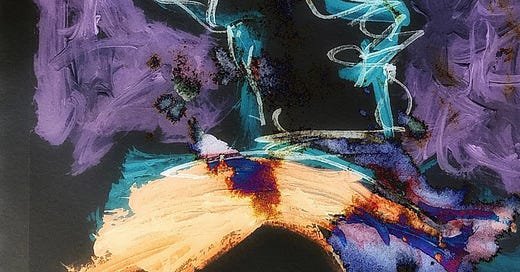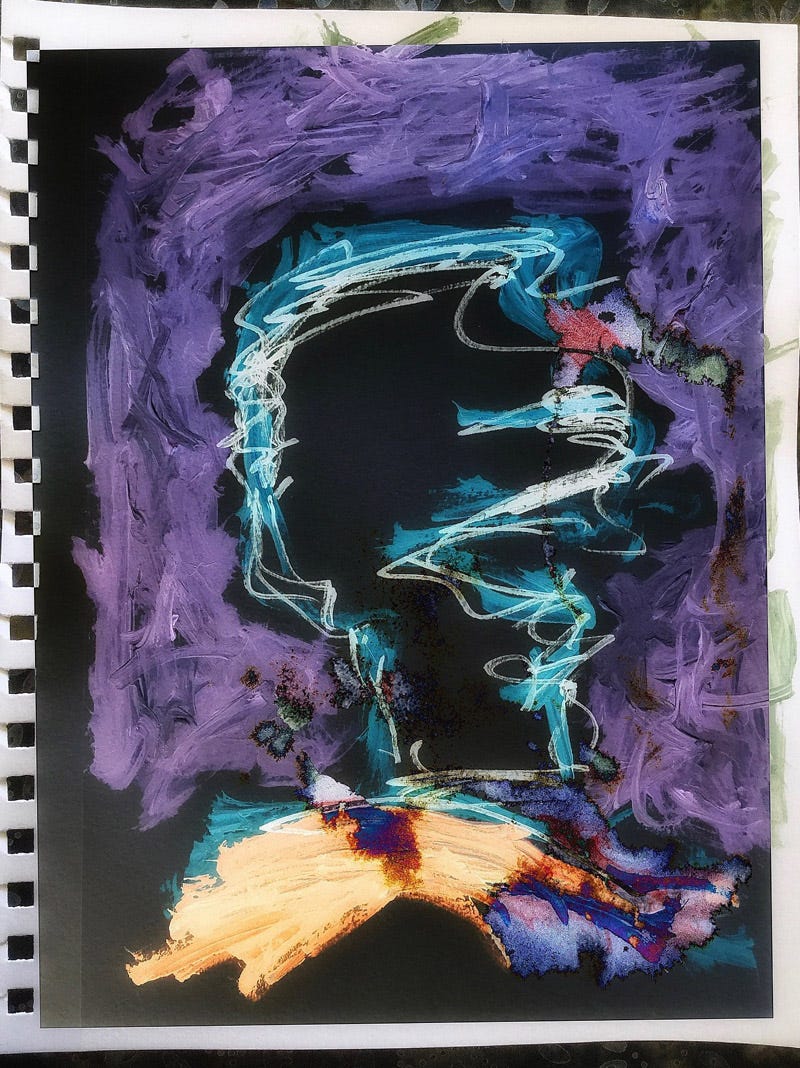Signal to Noise Report
Robot lunch, Robot arms, Robots who will accidentally wipe out mankind... More headlines from the bright, unnerving world of today.
The Signal to Noise Report collects headlines to illustrate humanity’s move into what is beginning to resemble a hybrid species: The Jetsons meets Blade Runner. The idea being that we have a proclivity to accept (with glee) whatever new techno gizmos are shoved at us, yet rarely question their purpose and/or their long-term effects on our health and sanity.
300 Japanese stores will be reshelved by robot arms next month
The TX-SCARA (short for “Selective Compliance Assembly Robot Arm”) is an autonomous restock bot capable of moving items from storage to fridge shelves, and was reportedly designed to help address the country’s ongoing labor shortage issues.
Just 300 installations is a small portion of the reportedly 16,000 FamilyMart locations across Japan, but Telexistence (and by extension Microsoft and Nvidia) has much larger designs for the TX-SCARA—an imminent expansion into US markets.
Source: Popular Science
Scientists want to spray sulphur dioxide into the atmosphere to refreeze the poles
Scientists presented a controversial plan whereby high-flying jets similar to a modified American KC-135R could spray microscopic aerosol particles into the atmosphere to refreeze the North and South Poles. The recently published research in IOP's Environmental Research Communications suggests that the method would be feasible and fairly cheap.
A fleet of 125 of these SAIL-43K tankers would release a cloud of microscopic sulfur dioxide particles, which at an altitude of 43,000 feet (13 kilometers) and latitude of 60 degrees north and south- could loft a payload sufficient to cool the regions by two degrees per year. Areas such as Anchorage, southern Alaska, and the southern tip of Patagonia- could return close to their pre-industrial average temperatures.
Source: Interesting Engineering
These Stanford engineers built a fully autonomous restaurant in San Francisco that could make your lunch cheaper
Kolchinski’s company Mezli is set to open a fully autonomous restaurant in San Francisco. The eatery, also named Mezli, will serve a variety of Mediterranean-themed grain bowls conceived by Michelin-star chef Eric Minnich. Kolchinski says it’ll be the world’s first fully autonomous restaurant, with a customizable menu of more than 60,000 possible variations, depending on the sides, add-ons or substitutions you choose.
As a customer, you make your selections — like a bowl of falafel, or spiced lamb and tzatziki with vegetables, turmeric rice, hummus and a cookie and drink on the side — from one of the digital screens on the side of the box. Inside, machines heat, mix and plate the ingredients associated with your specific order.
Minutes later, the restaurant dispenses your order from a pickup window at the end of the box. Mezli can currently churn out roughly 75 meals an hour, which Kolchinski says is on par with most large-scale fast-casual restaurant chains.
Source: CNBC
Opinion: How AI could accidentally extinguish humankind
According to a 2014 survey of experts, there’s a 50 percent chance “human-level machine intelligence” is reached by 2050, and a 90 percent chance by 2075. Another study from the Global Catastrophic Risk Institute found at least 72 projects around the world with the express aim of creating an artificial general intelligence — the steppingstone to artificial superintelligence (ASI), which would not just perform as well as humans in every domain of interest but far exceed our best abilities.
Because ASIs’ cognitive architectures may be fundamentally different than ours, they are perhaps the most unpredictable thing in our future. Consider those AIs already beating humans at games: In 2018, one algorithm playing the Atari game Q*bert won by exploiting a loophole “no human player … is believed to have ever uncovered.” Another program became an expert at digital hide-and-seek thanks to a strategy “researchers never saw … coming.”
If we can’t anticipate what algorithms playing children’s games will do, how can we be confident about the actions of a machine with problem-solving skills far above humanity’s?
Source: Washington Post
Google’s new robot butler was trained on social media and Wikipedia articles
For example, one Google research scientist typed “I’m hungry” into a laptop connected to Everyday Robots’ one-armed bot that vaguely resembles a large parking meter. The robot then considered the statement, rolled itself towards a nearby counter, and returned with a bag of chips—notably, this chosen solution wasn’t a preprogrammed one, but a decision based on copious conversational databases constructed from books, social media, Wikipedia articles, and other language-heavy online sources.
Source: Popular Science
What’s in your drinking water? If you live in one of these states, it might soon be recycled sewage
It’s a water recycling method known as direct potable reuse, or DPR, which sends highly treated sewage water almost directly to a drinking water system for distribution to communities. It’s legal in Texas, and legal on a case-by-case basis in Arizona. Multiple other states are in the process of formulating regulations to legalize it too, including California, Colorado, and Florida.
The water produced by DPR meets federal drinking water quality standards, experts say. And there’s a growing movement to urge people to warm up to the idea of DPR and other sewage recycling methods, which were once dismissively labeled “toilet-to-tap.”
“People need that change in mindset, forgetting where your water came from and focusing more on how clean it is when it’s in front of you,” Dan McCurry, a civil and environmental engineering professor at the University of Southern California, tells CNBC Make It.
Source: CNBC
Would You Ditch All This Chaos for a Country in the Cloud?
What awaits us beyond the maelstrom, far along the z-axis, at the corkscrew’s end? Government by the internet, for the internet, and of the internet—a new birth of freedom in the cloud. Srinivasan’s book, published on the anniversary of the US Declaration of Independence, is a how-to guide for building startups, where the thing being started up is a new society. His own cloud country, if he were to found one (which may be more of a “when”), would be based on three ideals: “infinite frontier, immutable money, eternal life.” He has called this his “bumper sticker that expands into a PhD thesis.” It’s also his Twitter bio.
As Srinivasan’s business profile has grown, his political ideas have undergone a few twists of the corkscrew. In the years to come, he’ll talk especially about a book called The Sovereign Individual, recommended to him by Thiel. He appreciates its “strength-to-weight ratio,” how each line rewards exegesis. The authors—James Dale Davidson, an American investor, and William Rees-Mogg, a British baron and longtime editor of The Times of London—argue that as digital technology makes wealth increasingly hard to tax, the nation-state will dissolve. Governments and industries will topple. Millions of “losers” and “neo-Luddites” and “left-behinds” will find themselves unemployed, or worse. But in the end, a tiny “cognitive elite” will escape the “tyranny of place” and build a global meritocracy in cyberspace. They will live wherever they please, associate with whomever they please, and keep every tax-sheltered cent they earn. Davidson and Rees-Mogg call this new realm of opportunity “Bermuda in the sky with diamonds.” (Thiel wrote the preface to the 2020 edition.)
The Valley is already moving this way, Srinivasan goes on. Larry Page has talked about a special zone being set aside for unregulated experimentation. Andreessen has predicted that the world will see “an explosion” in the number of countries. Thiel has proposed colonizing the ocean; Elon Musk, colonizing Mars. To partake in the “Ultimate Exit,” Srinivasan says, you could buy a private island or even just telecommute. His final tip to the Startup Schoolers is that if they want to think big, they should build technology “for what the next society looks like.”
Source: Wired
Ned Mudd resides in Alabama where he engages in interspecies communication, rock collecting, and frequent cloud watching. He is the author of The Adventures of Dink and DVD (a space age comedy). Some of Ned’s best friends are raccoons.





oh lord! thinking I am grateful I won't be around to see if all this comes to be. but, I sure am curious about it.
Scares the hell out of me. And I've been shuddering at mind-boggling repercussions from AI for a very long time. "Opinion: How AI could accidentally extinguish humankind" in particular stirs dread in my soul. No wonder I cried uncontrollably decades ago while watching "2001 A Space Odyssey" on the big screen. The movie hit a fearful nerve deep inside my psyche. Can't really explain why? Maybe it was like the utter sadness that crept over William Shatner when he experienced lonely unfathomable space? I'm ready to delve into other dimensions. What a comfort that would be.